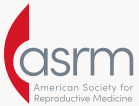Selecting an Egg Donor
March 4, 2019 by Frank Golden
Despite its growing popularity, I’ve noticed that many of our Intended Parents have questions about egg donation, and might even be confused by the process. I’m here to simplify it for you the best I can. When I was undergoing the egg donation process, I felt overwhelmed and, at times, frustrated by the ample amount of information, egg donor profiles, processes, everything that makes up a egg donation. As an agency owner and as a fellow Intended Parent, I feel that it is my responsibility to support other Intended Parents going through this process. I want to demystify the egg donation process and hopefully help other Intended Parents who are currently considering egg donation.
Primarily, every Intended Parent should know that, much like surrogates, egg donors must meet a certain list of requirements. Typically, egg donors are between the ages of 21-32; I’ve begun to notice, however, that many clinics and agencies cap out at age 28. Egg donors need to have a healthy BMI which typically means under 30. They must also have excellent reproductive health, must pass a psychological evaluation, and must be willing to take the necessary injectable medication. In egg donation, there is an emphasis on quantity and quality; the goal is to retrieve the highest quantity of quality eggs.
Intended Parents have two main options regarding egg donation: fresh or frozen. Intended parents have the option of selecting an egg donor for a fresh cycle, or they can visit an egg bank for frozen eggs. While the process of freezing eggs has developed tremendously over the years, I’m still a bit old school in my thinking and prefer fresh cycles. From my research and my personal experience, fresh cycles tend to have slightly better results than opting for frozen eggs. With that said, Intended Parents should choose the route that makes the most sense for them. Sometimes, time is a factor, and in that case, Intended Parents might want to visit an egg bank; fresh cycles require a bit more time since the egg donor will have to take medication to prepare for egg retrieval. Both options allow Intended Parents to see a detailed donor profile that contains information about the donor’s health, family background, education, lifestyle, and other pertinent information.
If choosing to retrieve frozen eggs, please check your sources, compare reviews, and ask the right questions to ensure that your chosen bank is reputable. For Intended Parents choosing to go with a fresh cycle, we recommend one of two options: select a donor through your fertility clinic’s database or select a donor through a reputable online donor database.
Another consideration is the type of relationship Intended Parents want with their egg donor. There are three basic types of arrangements: known, semi-known, and anonymous. In a known arrangement, Intended Parents and Egg Donors are introduced either in person or over a match call. All contact information is exchanged, and there is a heavy focus on the relationship between all parties. Semi-known arrangements typically allow for Intended Parents and Egg Donors to know a little bit about each other. For example, both parties might know each other’s name, location, and other small tidbits of identifying information. Anonymous arrangements are arrangements in which Intended Parents have access to the information stated on the profile as well as a picture, but are not given information outside of that; Intended Parents will not know the donor’s name, location, or any of identifying information. Just a side note: if you’re going through an anonymous egg donation arrangement, I recommend including a clause in the contract that allows for future communication between egg donor and Intended Parent. If your child should develop any medical issues or if you need more eggs due to unforeseen circumstances, agencies/clinics will be granted the right to reach out to the egg donor on behalf of the Intended Parents. In my situation, as many of our followers already know, we ran out of embryos after several failed transfers. It was devastating, but luckily we were able to retrieve more eggs from our original donor, and as a result, our son, Silas was born.
Actually, while we’re on the subject, Adam and I have an interesting story: originally, we decided to go with an anonymous egg donor, but somewhere along the line, things changed and we got to know our egg donor – on accident. During our first journey, our Surrogate was heavily involved in Facebook groups pertaining to surrogacy and egg donation, she followed our agency on social media, and was immersed in the third party reproductive world. One day – I’ll never forget it – I was about to go shopping and I received a text from my Surrogate stating that, thanks to Facebook, she might have discovered who our egg donor was. Our Surrogate was able to piece together information we shared with her and the information shared on this, at the time, stranger’s Facebook page. Even though we opted for an anonymous arrangement, we were incredibly grateful to get to know this woman, and consider it a miraculous accident. Our situation turned out positive, but that’s not say that other Intended Parents and Egg Donors will feel the same way. It is imperative for agencies to consider creating policies regarding social media use for anonymous donors. At the very least, agencies/clinics might want to restrict anonymous donors from following their social media platforms.
As I mentioned before, we were thrilled to have been able to meet our donor, and luckily, she was just as happy to meet us. Our egg donor was amazing, truly amazing. She was everything we were looking for: personable, talented, beautiful. Her profile gave us a pretty solid overview of the kind of person she was, but meeting her face-to-face, hearing her voice, her laughter, meeting her family, really solidified it all. We were honored to have chosen her to combine our DNA with. We felt blessed. It wasn’t easy selecting this amazing woman amongst the endless sea of donor profiles. The process of picking out the other half of your future children’s DNA is daunting, to say the least. There are a number of factors to look at, but for the sake of simplifying the process, I’ve broken it down into four main categories: education, health, family history, and beauty. Every set of Intended of Parents will prioritize these categories differently. I recommend choosing two of the four categories to focus on. For Adam and I, we choose to focus on the health of the egg donor and her family, and good aesthetics. These factors mattered to us. Perhaps, you’re more concerned about education and finding a highly intelligent egg donor. There is no right and wrong. This decision is solely based on your specific ideals.
As you can see, the egg donation process is multi-tiered. There are a number of factors to consider when selecting an egg donor, some of which might be overwhelming to process. Golden Surrogacy does not offer an egg donation program. Due to the complex nature of both egg donation and Surrogacy, we find that focusing exclusively on Surrogacy is in the best interest of our clients. With that said, we are here to help Intended Parents through every step of the process, starting with egg donation. We understand first-hand how intimidating this all can be, and we make it our duty to simplify the process and to offer expert advice throughout each phase of the journey.
Regardless of how you choose to go about the egg donation process, the end goal is all that matters. What worked for Adam and I might not work for you. We encourage you to discover your own path, and to do what feels right. In our situation, Adam and I began our egg donation journey with an anonymous egg donor. She was a nameless face and an impressive profile. Now she is a part of our daughter, a part of our son. She is a part of our lives. She is, as our daughter, Sophia calls her, our “Special Friend”.











